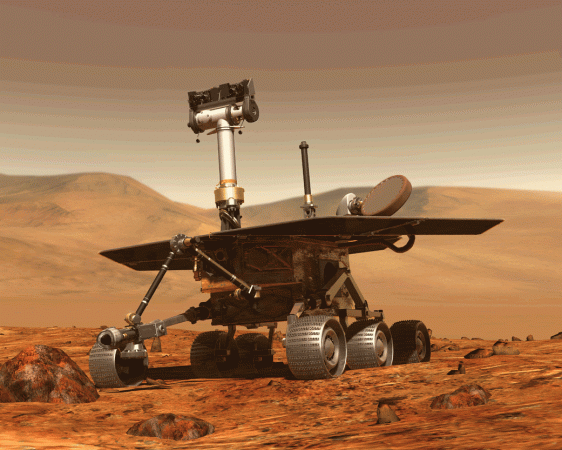
After NASA lost Opportunity to the global dust storm on Mars—it has been over 100 days and still no word from it—Curiosity has also run into a bit of trouble. The hardy rover has had trouble beaming science data back to Earth since 15 September.
The files stored on its on-board memory seem to be having problems and the issue is linked to its internal filing systems, says NASA. As a result, the ground team has put Curiosity on stand down from all science missions till technicians figure out what is wrong with the rover, reports Space.com.
According to Curiosity's deputy project manager Steve Lee of JPL, the problem seems to be in the rover's internal filing systems. An error of some sort is preventing the robot from accessing locations where affected data is stored on its drives. Lee went on to explain that the ground team is narrowing it down and potential causes are being looked into, but they are yet to determine whether the problem is hardware or software related.
Apart from this glitch, the rover is otherwise doing well, notes the report. In fact, it is still constantly sending back engineering data, which NASA terms as useful in diagnosing the file and memory errors. That means this error, said Lee, is not a time-critical one, unlike the computer issues that Curiosity faced just 200 Mars days (Sols) after landing on Mars in August 2012.
While the current memory issue is a complex one, engineers are not really discouraged, notes the report, the rover has gone through far more serious setbacks. The Curiosity team have several options to deal with this issue currently.
Problems related to memory hardware can be worked out for any portions of the memory banks that are no longer operating, said Lee. If the issue is software related, "a fix can be devised to upgrade Curiosity's onboard flight software..." There is a backup computer available, called the A Side, it has less available memory because of the Sol 200 incident, he said.
"During the Sol 200 anomaly," said Lee, "the rover was not responding to commands, nor was it sleeping to recharge its battery."
"The team is confident that they'll find a workaround to allow Curiosity to return to normal science operations," Lee said.

















